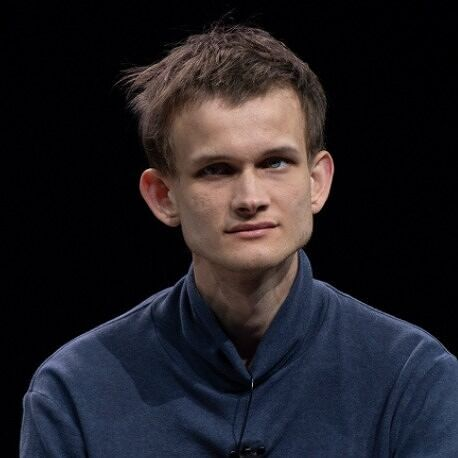
Vitalik Buterin, the 28-year-old co-founder of Ethereum, is a prominent figure in the world of cryptocurrency, standing in stark contrast to Bitcoin’s enigmatic creator, Satoshi Nakamoto. While Nakamoto remains an anonymous legend, Buterin’s genius and innovation are at the forefront of a technological revolution that extends far beyond digital currency.
Buterin’s creation, Ethereum, isn’t just the second-largest cryptocurrency by market capitalization (worth over INR 13 trillion); it has redefined what blockchain technology can achieve. As the driving force behind smart contracts, decentralized applications (dApps), and a growing decentralized finance (DeFi) ecosystem, Buterin’s influence reaches into the core of how we think about the future of financial markets and digital interactions.
The Birth of Ethereum: A Vision Beyond Bitcoin
Buterin was first exposed to Bitcoin by his father during his teenage years, but the young Russian-Canadian saw more than just a digital currency; he saw the potential for an entirely new computing platform. While studying at the University of Waterloo, Buterin co-founded Bitcoin Magazine, becoming a respected voice in the early days of the crypto space.
In 2013, at just 19 years old, Buterin authored a groundbreaking white paper that proposed Ethereum as “a next-generation smart contract and decentralized application platform.” Unlike Bitcoin, which was limited to simple transactions, Ethereum aimed to be a “world computer” capable of running complex programs, known as smart contracts, on a decentralized blockchain.
These self-executing contracts automate agreements between parties, eliminating the need for intermediaries. Imagine applications that can handle everything from financial transactions to legal agreements, all without the need for third parties like banks or lawyers. Buterin’s vision was a bold leap into a decentralized future.
Ethereum’s Meteoric Rise
In 2015, two years after Buterin’s white paper, Ethereum launched, ushering in a new era of blockchain-based innovation. With co-founders including Gavin Wood and Charles Hoskinson, the Ethereum team brought to life the first platform for smart contracts, enabling decentralized applications that have since transformed industries.
From decentralized finance protocols like MakerDAO to virtual worlds like Decentraland, Ethereum has become the foundation for a new digital economy. Today, Ethereum supports thousands of dApps, including NFTs (non-fungible tokens) and other blockchain-based technologies that are changing how we interact with the digital world.
Addressing Ethereum’s Biggest Challenge: The Merge
While Ethereum’s potential was clear, it wasn’t without challenges. The network’s original proof-of-work consensus mechanism required massive amounts of computational power, leading to environmental concerns. At its peak, a single Ethereum transaction consumed as much energy as an average U.S. household uses in a week.
Buterin, ever conscious of Ethereum’s impact, championed the transition to proof-of-stake—a more energy-efficient system where validators secure the network by staking their ETH rather than solving complex equations. The Ethereum merge, completed in September 2022, reduced the network’s power consumption by over 99%, marking a significant milestone in Ethereum’s evolution and securing its future as a sustainable blockchain platform.
Buterin’s Journey and Philanthropy
Vitalik Buterin’s influence extends beyond Ethereum. He has been recognized with numerous accolades, including an honorary doctorate from the University of Basel and a bronze medal in the International Olympiad in Informatics. He is also an active philanthropist, having donated over 100 crores in cryptocurrencies to various causes, including efforts to develop safer artificial intelligence.
Despite his wealth, estimated at INR 32 billion, Buterin remains focused on building the decentralized world he envisions. Unlike many tech moguls, Buterin has not pursued personal fame or fortune. Instead, his passion lies in creating platforms that empower individuals and foster decentralized decision-making.
The Future: Ethereum and the Metaverse
Buterin’s ambitions extend into the burgeoning metaverse, a virtual space where people can interact, work, and play in digital environments. However, he has been critical of corporate-led initiatives, such as Meta’s (formerly Facebook) attempts to dominate this space, arguing that the true metaverse should be decentralized and community-driven.
Buterin’s belief in Ethereum’s potential to power the metaverse reflects his broader vision: a digital world where no single entity controls the narrative, and where technology serves the people, not the other way around. He is actively involved in projects like L4 and Plasma Group, which are exploring ways to scale Ethereum and further decentralize the internet.
The Legacy of a Crypto Pioneer
At just 28, Vitalik Buterin has already reshaped the world of finance, technology, and digital governance. Through Ethereum, he has laid the groundwork for a future where decentralized applications could redefine everything from finance to governance. In a world increasingly driven by data and connectivity, Buterin’s work is a testament to the power of vision, innovation, and a relentless pursuit of a more open, transparent, and equitable digital future.






Be First to Comment